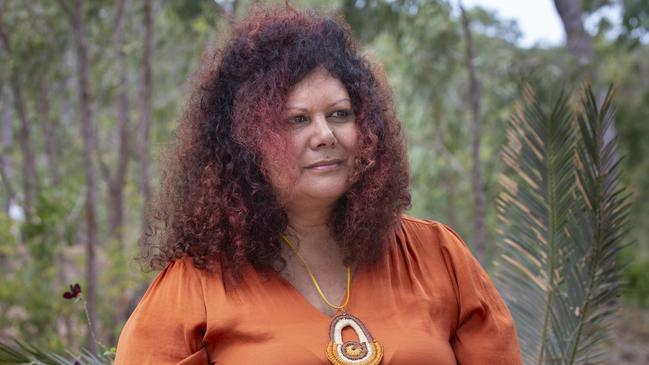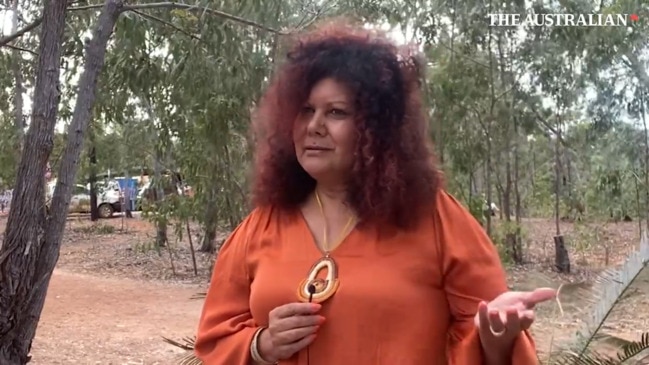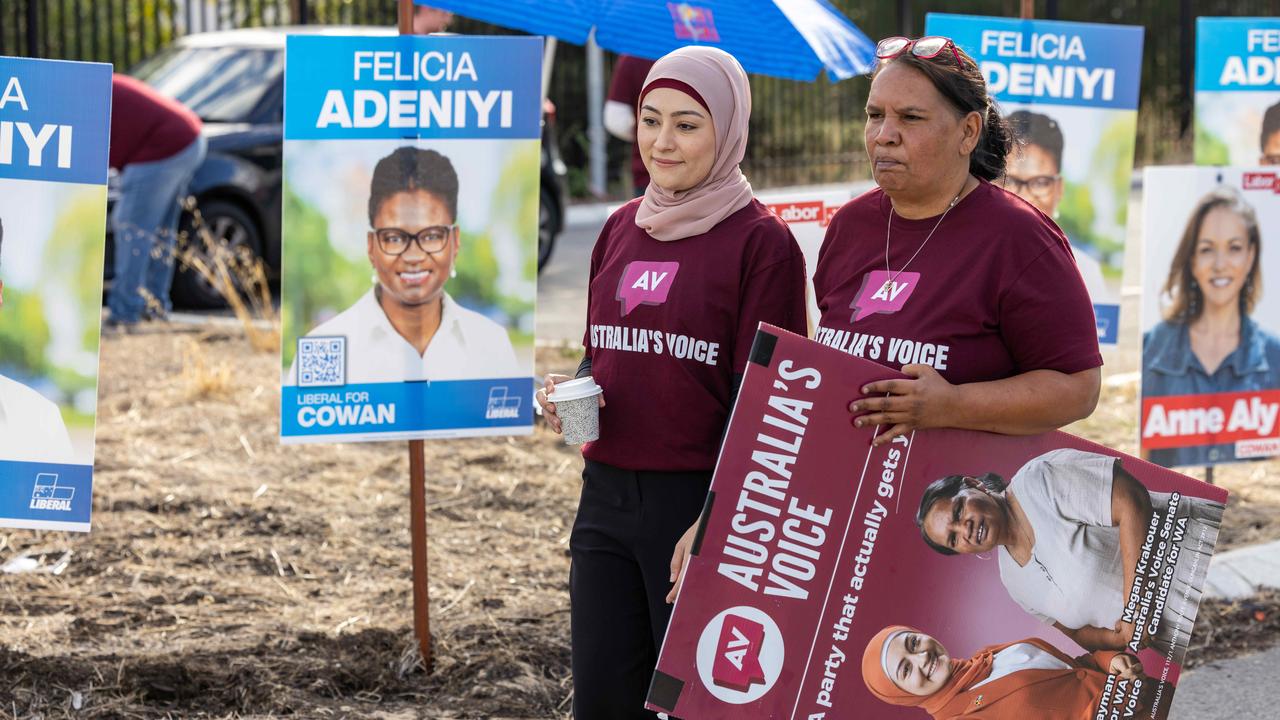McCarthy’s inspiration? Children’s future
The new Indigenous Australians Minister and her husband Richard are raising four young Aboriginal girls, the biological children of relatives who previously lived with their grandmother.

Malarndirri McCarthy reminds herself daily there are “four beautiful reasons why creating a better way of life in Australia deeply matters”.
“They are Hadassah, Ebony, Indianna and Nevaeh,” she says.
The new Indigenous Australians Minister and her husband Richard are raising four young Aboriginal girls, the biological children of relatives who previously lived with their grandmother.
Senator McCarthy is the first cabinet minister raised in a remote Aboriginal community. She is from Borroloola in the NT, where the old people sing of the shark dreaming, and how it travelled from Queensland all the way down the coast to the Gulf Country and out to the islands.
In her work as a television journalist and later as an NT politician, Senator McCarthy has watched many of the old people return to child-raring roles.
“Grandmothers in particular … sadly, hold more of the responsibility of raising the next generation of children and sometimes great grandchildren,” she tells The Weekend Australian.
The reasons are many, she says. Some cannot raise their children because they are still children themselves. Others are captured by the lure of substance abuse with alcohol and drugs. And some are in the revolving door of incarceration.

In many cases, Senator McCarthy says, poverty is a deep cause.
“I’ve seen a lot of that burden,” she said on Friday.
In Senator McCarthy’s big family – she has two adult sons – the four young girls still spend time with their grandmother on school holidays.
Senator McCarthy’s uncommon life story has resulted in a deep understanding of the plight of the most disadvantaged Indigenous Australians and the priorities of the non-Aboriginal world. She credits her father, a schoolteacher from Sydney, for inspiring “my educational upbringing, both in the Western ways and in maintaining a strong understanding of Borroloola families”.
Giving an oration to the Australian Catholic University in North Sydney last week, she said: “It was my mother, bless her soul, who taught me the Yanyuwa and Garrawa ways of our families.
“Our McCarthy ancestor came to Australia in 1842, sailing across the seas from Ireland aboard the ship Palestine. Unlike so many before him, he came not as a convict but as a free man.
“He chose to make this country his home, not just for him but for his young family. To live in Australia, to build his future and his dream, in an unknown land.”
Senator McCarthy said a deep Catholic faith had passed down the generations of the McCarthy clan. Her father John baptised her as a baby, fearing she might not live.
At 54, Senator McCarthy knows what she wants to achieve as minister. Her focus is to begin to reverse the terrible results in the first four years of the Closing the Gap agreement that was signed by all governments in 2020.
Part of that is a transformation of the collapsed work for the dole scheme known as CDP. Ultimately she says it must bring back the dignity of work for thousands of people.
The Indigenous voice, which she supported, was emphatically voted down but the principle of shared decision making with Aboriginal communities is acknowledged as the way to close the gap.
All governments promised to do this in the agreement but the Productivity Commission has found it is business as usual inside bureaucracies.
“I think this shows the clear conundrum doesn’t it?” she says. “Because the whole purpose of going to the referendum was to be able to give that voice so that First Nations people would be … a part of that decision making,” she said in a panel discussion at the Garma Festival at Gulkuka on Friday.




To join the conversation, please log in. Don't have an account? Register
Join the conversation, you are commenting as Logout